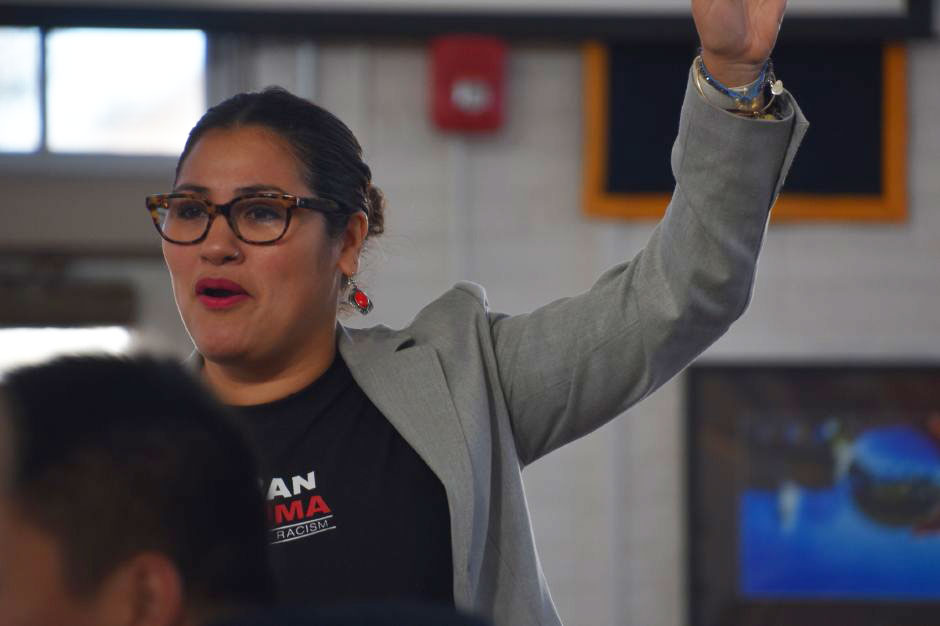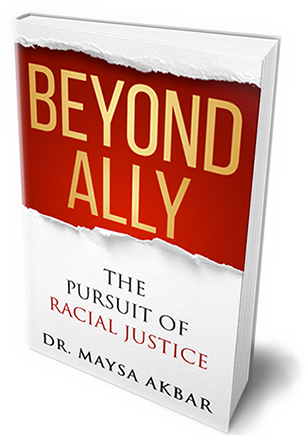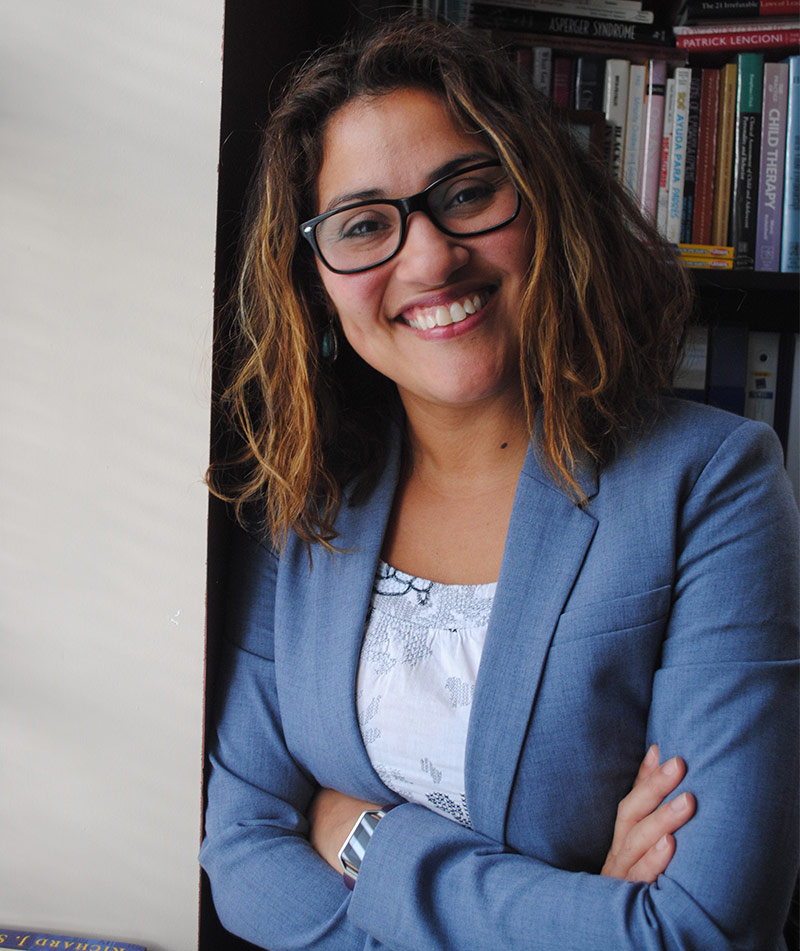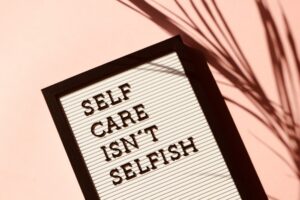
Understanding the Impact of Systemic Challenges on Communities
In her groundbreaking book, Urban Trauma: A Legacy of Racism, Dr. Akbar introduces the Urban Trauma® framework. She explores how communities impacted by systemic challenges often navigate persistent stress, feelings of frustration, at times leading to a sense of hopelessness. By addressing these realities, Dr. Akbar provides a pathway for understanding, healing, and liberation.
Dr. Maysa Akbar’s journey is one of resilience—overcoming adverse childhood experiences, witnessing harms in her community, yet finding a path to success through education. Her lived experience shaped her understanding of the challenges faced by underserved urban communities.
In Urban Trauma: A Legacy of Racism, Dr. Akbar introduces the Urban Trauma® framework, exploring the persistent conditions that contribute to systemic challenges in urban environments. Issues such as health inequities, isolation, barriers to care, accessibility issues and more have far-reaching effects on individuals and communities.
Drawing from history, research, and psychology, Dr. Akbar demonstrates that recognizing these challenges is the first step toward healing, growth, and breaking generational cycles. By fostering understanding and providing tools for resilience, Urban Trauma offers a pathway for communities to thrive.

“This book helps me understand the impact of urban trauma on conditions in my city that my administration works to ameliorate. Dr. Akbar’s poignant stories and insight into negative, often disruptive behaviors of children and adults living with multigenerational trauma provides a foundation for understanding these problems and provides tools to address these complex limiting behaviors.”
— Toni Harp, Mayor, New Haven, Connecticut
In Urban Trauma: A Legacy of Racism, Dr. Akbar introduces the Urban Trauma® framework, exploring the persistent conditions that contribute to systemic challenges in urban environments. Issues such as health inequities, isolation, barriers to care, accessibility issues and more have far-reaching effects on individuals and communities.
Drawing from history, research, and psychology, Dr. Akbar demonstrates that recognizing these challenges is the first step toward healing, growth, and breaking generational cycles. By fostering understanding and providing tools for resilience, Urban Trauma offers a pathway for communities to thrive.
Beyond Ally: The Pursuit of Racial Justice
In her second book, Beyond Ally: The Pursuit of Racial Justice, Dr. Maysa Akbar introduces the Ally Identity Model, a framework designed to guide individuals through the stages of allyship. With wisdom and clarity, Dr. Akbar provides practical tools to foster understanding, build stronger relationships, and support meaningful collaboration across communities.

Engaging in meaningful allyship can be a transformative process, providing individuals with opportunities to align their actions with values like fairness, understanding, and engagement. It builds essential skills such as active listening, sharing power, and constructively addressing conflict—skills that are critical for bridging divides and fostering stronger communities.
In Beyond Ally: The Pursuit of Racial Justice, Dr. Maysa Akbar, a renowned expert on trauma and cultural transformation, introduces a new framework for allyship. Through her Ally Identity Model, Dr. Akbar provides clear, actionable guidance for individuals seeking to build authentic relationships, foster understanding, and contribute to meaningful change.
This work highlights the historical and societal obstacles that have shaped our present reality and offers practical tools to address these issues, creating a pathway for healing, connection, and forward progress.

“This is a critical moment in our country’s history, and defeating systemic inequality will take allies who are committed to learning what it really means to fight racial injustice. An important and timely book, Beyond Ally offers a detailed road map for those of us who want to help build a more just and equitable world”
— Peter T. Grauer, Chairman, Bloomberg LP
As seen in the following media outlets:




How do you ‘Celebrate’ Cinco de Mayo
Being a mental health provider is incredibly rewarding, but it isn’t easy — particularly during a global pandemic and a national anti-racist uprising. As mental health professionals, while we remain committed to supporting our clients in coping with their trauma, grief, and anxiety during this moment, we must also remain committed to ensuring our own wellness. It’s like being on an airplane: in order to fully support our clients, we must secure our own oxygen mask first.I’ve spent the past month meeting with clients who are experiencing intense grief over the loss of loved ones due to the pandemic and even the trauma of this moment of racial unrest. As professionals, it’s easy to recognize all of the signs in our clients — anger, rage, despair, and grief. But as we prepare ourselves for an influx of clients experiencing race-based trauma over the coming weeks and months, I’m calling on all mental health professionals across the state to practice what we preach. Whether you call it compassion-fatigue or vicarious trauma, in my line of work professionals are deeply affected by the despair and grief of their clients. We hold unconditional space for our clients to express their innermost thoughts and feelings. Our job is never easy, but during these times, it’s in high demand and deeply needed. That’s why now, more than ever, we must ensure we are acknowledging and addressing our own vulnerabilities as we tackle this unprecedented grief from the communities we serve. As a race-based trauma expert, I know that communities of color have been hit hardest by both the COVID-19 crisis and the racism pandemic. Families are reeling, some losing more than one family member in a short period of time, all while dealing with the threat of contracting the virus themselves, and not being able to say their final goodbyes. Our communities are also experiencing the ongoing impact of urban trauma as a result of the constant barrage of police violence and intergenerational poverty that exacerbates the effects of the coronavirus. To respond appropriately, mental health providers, especially those serving communities of color, must remain attuned with the issues, prepared to undergo self-examination and learning, and commit to being well and resilient in order to provide optimal care for every client. In my own practice, we are working with massive numbers of people experiencing grief. Hour after hour, we are managing the broken hearts of others, while recognizing that our own fears and anxieties are being exposed and are as vulnerable as our clients. Our work has increased, not only in numbers but the severity of the symptoms we are seeing in our clients. Even now, as we serve clients whose reaction to COVID is coupled with the nation’s reaction to the racial crisis, we are most certainly experiencing a form of grief alongside them. After providing them with some relief, we often take on that weight ourselves compounded by the gravity of our own issues and those of the rest of the people we serve. Since social distancing officially started in our state, I and the clinicians in my practice have been working tirelessly to support our clients, who are primarily people of color, as they experience all these characteristics of grief. What I’ve noticed in providers is an initial reaction to experiencing sadness for the clients and their plight. From there, providers are prone to deeply empathize with clients, internalizing their issues, and at times, inheriting them. During this time, we have an obligation to be self-aware. We must be able to identify these tendencies, recognize our projections, and respond accordingly. I encourage each provider to develop coping strategies to help navigate this moment. Consult with colleagues, ensure you’re eating and sleeping well, meditate, take wellness breaks, and breathe. So put that oxygen mask on, friends and colleagues, our clients rely on us to be well.

Motherhood
Being a mental health provider is incredibly rewarding, but it isn’t easy — particularly during a global pandemic and a national anti-racist uprising. As mental health professionals, while we remain committed to supporting our clients in coping with their trauma, grief, and anxiety during this moment, we must also remain committed to ensuring our own wellness. It’s like being on an airplane: in order to fully support our clients, we must secure our own oxygen mask first.I’ve spent the past month meeting with clients who are experiencing intense grief over the loss of loved ones due to the pandemic and even the trauma of this moment of racial unrest. As professionals, it’s easy to recognize all of the signs in our clients — anger, rage, despair, and grief. But as we prepare ourselves for an influx of clients experiencing race-based trauma over the coming weeks and months, I’m calling on all mental health professionals across the state to practice what we preach. Whether you call it compassion-fatigue or vicarious trauma, in my line of work professionals are deeply affected by the despair and grief of their clients. We hold unconditional space for our clients to express their innermost thoughts and feelings. Our job is never easy, but during these times, it’s in high demand and deeply needed. That’s why now, more than ever, we must ensure we are acknowledging and addressing our own vulnerabilities as we tackle this unprecedented grief from the communities we serve. As a race-based trauma expert, I know that communities of color have been hit hardest by both the COVID-19 crisis and the racism pandemic. Families are reeling, some losing more than one family member in a short period of time, all while dealing with the threat of contracting the virus themselves, and not being able to say their final goodbyes. Our communities are also experiencing the ongoing impact of urban trauma as a result of the constant barrage of police violence and intergenerational poverty that exacerbates the effects of the coronavirus. To respond appropriately, mental health providers, especially those serving communities of color, must remain attuned with the issues, prepared to undergo self-examination and learning, and commit to being well and resilient in order to provide optimal care for every client. In my own practice, we are working with massive numbers of people experiencing grief. Hour after hour, we are managing the broken hearts of others, while recognizing that our own fears and anxieties are being exposed and are as vulnerable as our clients. Our work has increased, not only in numbers but the severity of the symptoms we are seeing in our clients. Even now, as we serve clients whose reaction to COVID is coupled with the nation’s reaction to the racial crisis, we are most certainly experiencing a form of grief alongside them. After providing them with some relief, we often take on that weight ourselves compounded by the gravity of our own issues and those of the rest of the people we serve. Since social distancing officially started in our state, I and the clinicians in my practice have been working tirelessly to support our clients, who are primarily people of color, as they experience all these characteristics of grief. What I’ve noticed in providers is an initial reaction to experiencing sadness for the clients and their plight. From there, providers are prone to deeply empathize with clients, internalizing their issues, and at times, inheriting them. During this time, we have an obligation to be self-aware. We must be able to identify these tendencies, recognize our projections, and respond accordingly. I encourage each provider to develop coping strategies to help navigate this moment. Consult with colleagues, ensure you’re eating and sleeping well, meditate, take wellness breaks, and breathe. So put that oxygen mask on, friends and colleagues, our clients rely on us to be well.

During COVID and Racial Unrest, Mental Health Professionals Must Practice Self-Care Too
Being a mental health provider is incredibly rewarding, but it isn’t easy — particularly during a global pandemic and a national anti-racist uprising. As mental health professionals, while we remain committed to supporting our clients in coping with their trauma, grief, and anxiety during this moment, we must also remain committed to ensuring our own wellness. It’s like being on an airplane: in order to fully support our clients, we must secure our own oxygen mask first.I’ve spent the past month meeting with clients who are experiencing intense grief over the loss of loved ones due to the pandemic and even the trauma of this moment of racial unrest. As professionals, it’s easy to recognize all of the signs in our clients — anger, rage, despair, and grief. But as we prepare ourselves for an influx of clients experiencing race-based trauma over the coming weeks and months, I’m calling on all mental health professionals across the state to practice what we preach. Whether you call it compassion-fatigue or vicarious trauma, in my line of work professionals are deeply affected by the despair and grief of their clients. We hold unconditional space for our clients to express their innermost thoughts and feelings. Our job is never easy, but during these times, it’s in high demand and deeply needed. That’s why now, more than ever, we must ensure we are acknowledging and addressing our own vulnerabilities as we tackle this unprecedented grief from the communities we serve. As a race-based trauma expert, I know that communities of color have been hit hardest by both the COVID-19 crisis and the racism pandemic. Families are reeling, some losing more than one family member in a short period of time, all while dealing with the threat of contracting the virus themselves, and not being able to say their final goodbyes. Our communities are also experiencing the ongoing impact of urban trauma as a result of the constant barrage of police violence and intergenerational poverty that exacerbates the effects of the coronavirus. To respond appropriately, mental health providers, especially those serving communities of color, must remain attuned with the issues, prepared to undergo self-examination and learning, and commit to being well and resilient in order to provide optimal care for every client. In my own practice, we are working with massive numbers of people experiencing grief. Hour after hour, we are managing the broken hearts of others, while recognizing that our own fears and anxieties are being exposed and are as vulnerable as our clients. Our work has increased, not only in numbers but the severity of the symptoms we are seeing in our clients. Even now, as we serve clients whose reaction to COVID is coupled with the nation’s reaction to the racial crisis, we are most certainly experiencing a form of grief alongside them. After providing them with some relief, we often take on that weight ourselves compounded by the gravity of our own issues and those of the rest of the people we serve. Since social distancing officially started in our state, I and the clinicians in my practice have been working tirelessly to support our clients, who are primarily people of color, as they experience all these characteristics of grief. What I’ve noticed in providers is an initial reaction to experiencing sadness for the clients and their plight. From there, providers are prone to deeply empathize with clients, internalizing their issues, and at times, inheriting them. During this time, we have an obligation to be self-aware. We must be able to identify these tendencies, recognize our projections, and respond accordingly. I encourage each provider to develop coping strategies to help navigate this moment. Consult with colleagues, ensure you’re eating and sleeping well, meditate, take wellness breaks, and breathe. So put that oxygen mask on, friends and colleagues, our clients rely on us to be well.

